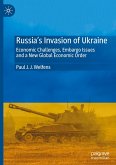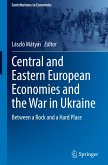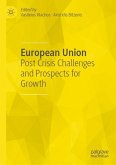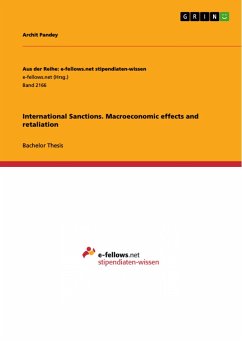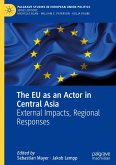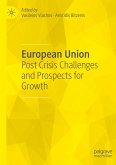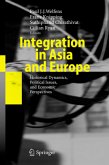This book presents a cutting-edge analysis of the economic effects and challenges of Russia's invasion of Ukraine, with a special focus on EU sanctions on Russian energy and Ukraine's political relationship with the European Union in a global context.
Welfens outlines key macroeconomic perspectives on the ongoing conflict between Russia and Ukraine, highlighting in particular how sanctions posed by the international community will have a wider economic impact than what has so far been envisaged. The book discusses the effects of Russian gas supply boycotts against Western countries as well as global effects of an EU energy import boycott on Russia, especially for China and the Asian continent. An innovative proposal to cut electricity prices is presented. It also explores the challenges to relations between the EU, China and Russia caused by the invasion, the effects of the unfolding refugee crisis (within a post-Brexit EU), military and humanitarian aid pledges to Ukraine,and the risks of reduced multilateralism within the world economy as a direct result of the war. The book also analyses the risks and benefits of potential enlargement of the EU to integrate Ukraine as a member state. The topics covered by the book are all set within a long-run view of diplomatic and economic relations between the West, Russia and Ukraine.
The factors analysed here provide a new, broader picture of the international effects of the conflict, as well as its potential implications for policy design as we enter a new global order marked by the Russo-Ukrainian war. The book will be of interest to researchers and policy-makers working in international economics, new political economy, European politics and integration, and macroeconomics more broadly.
Welfens outlines key macroeconomic perspectives on the ongoing conflict between Russia and Ukraine, highlighting in particular how sanctions posed by the international community will have a wider economic impact than what has so far been envisaged. The book discusses the effects of Russian gas supply boycotts against Western countries as well as global effects of an EU energy import boycott on Russia, especially for China and the Asian continent. An innovative proposal to cut electricity prices is presented. It also explores the challenges to relations between the EU, China and Russia caused by the invasion, the effects of the unfolding refugee crisis (within a post-Brexit EU), military and humanitarian aid pledges to Ukraine,and the risks of reduced multilateralism within the world economy as a direct result of the war. The book also analyses the risks and benefits of potential enlargement of the EU to integrate Ukraine as a member state. The topics covered by the book are all set within a long-run view of diplomatic and economic relations between the West, Russia and Ukraine.
The factors analysed here provide a new, broader picture of the international effects of the conflict, as well as its potential implications for policy design as we enter a new global order marked by the Russo-Ukrainian war. The book will be of interest to researchers and policy-makers working in international economics, new political economy, European politics and integration, and macroeconomics more broadly.


